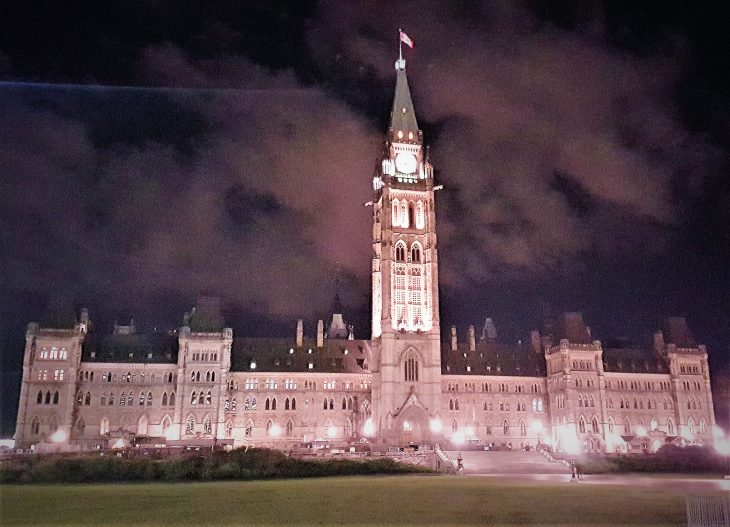
OTTAWA – A letter signed by Heritage Minister Mélanie Joly, ISED Minister Navdeep Bains and Finance Minister Bill Morneau confirms there will be no tax applied to Canadian ISPs in order to support Canadian content and journalism.
The October 16th letter – sent in response to the Standing Committee on Canadian Heritage report entitled “Disruption: Change and Churning in Canada's Media Landscape” – actually seems to kibosh a lot of the committee’s wish list.
(Ed note: The letter reads more like a detailed defense of the current Liberal policies [Connect to Innovate], prior announcements [Creative Canada – within which echoes of the committee work may have made an appearance], existing programs [CMF and CPF], and future plans (overhauling the Broadcasting and Telecom Acts) which we find a little odd, since we assume these are things most of the committee members should know. However, some of the recommendations made by the committee in the report show they actually do not. Sigh. But we digress…)
“Therefore, the Government does not intend to expand the current levy on broadcast distribution undertakings.”
The most contentious recommendation in the committee’s report published in June, however, centred on the idea that Canadian internet service providers be forced to collect a 5% levy which would then be directed towards the production of Canadian content – either entertainment or journalism. Canadian broadcast distribution undertakings (BDUs – cable/satellite/IPTV providers) collect such a fee from its video subscribers already.
The letter says that’s not going to happen.
“The Committee's recommendation to generate revenue by expanding broadcast distribution levies so that they apply to broadband distribution would conflict with the principle of affordable access,” reads the letter. “The open Internet has been a powerful enabler of innovation, driving economic growth, entrepreneurship, and social change in Canada and around the world. The future prosperity of Canadians depends on access to an open Internet where Canadians have the power to freely innovate, communicate, and access the content of their choice in accordance with Canadian laws. Therefore, the Government does not intend to expand the current levy on broadcast distribution undertakings.”
So, we would assume that means that no matter what the government does in modernizing the Telecom Act and Broadcasting Act, for which it has begun to assemble data, there will be no new language that allows for an ISP levy (something the Supreme Court already said no to). If so, that makes Minister Joly’s statements made here, which forced us to write that the government actually was looking to place a Cancon levy on ISPs, all the more puzzling.
The letter also dismissed the report’s recommendations to try and protect diversity of media voices by reviewing proposed media mergers because that “would likely only cover one subset of cases where diversity of voices is likely to be affected in a rapidly evolving industry,” and besides, the Internet is enabling new media startups all the time and there are federal government support programs in place to assist there already.
The letter further dismissed the idea of diverting funds from wireless spectrum auctions towards Cancon.
When it came to the tax recommendations made by the committee, some of those are non-starters, too, says the letter, while others are being considered. “The Government acknowledges the recommendation to subject foreign news aggregators to the same tax obligations as Canadian providers. The emergence and rapid growth of the digital economy pose challenges for tax systems in all jurisdictions, including Canada. The Department of Finance is examining the issue.”
The committee also recommended that the Income Tax Act be changed to classify not-for-profit media as being eligible for charitable status. “It is not clear that amending the Income Tax Act to include not-for-profit media organizations and foundations as charities would be an effective way of supporting the not-for-profit media,” reads the letter.
The committee also recommended a few things relating to the CBC, but the letter essentially notes the government has boosted the broadcaster’s funding and left CBC decisions up to the CBC.
Click here for the link to the letter itself.


